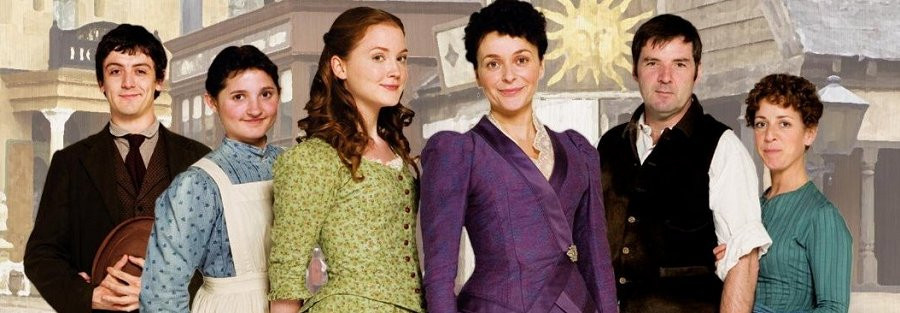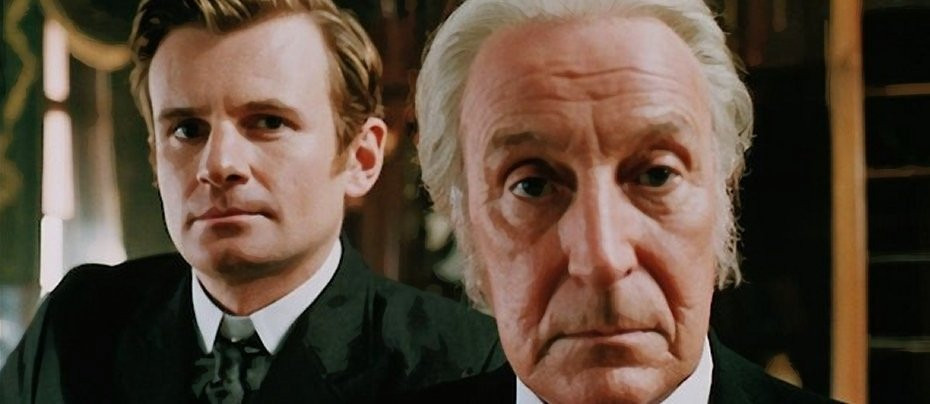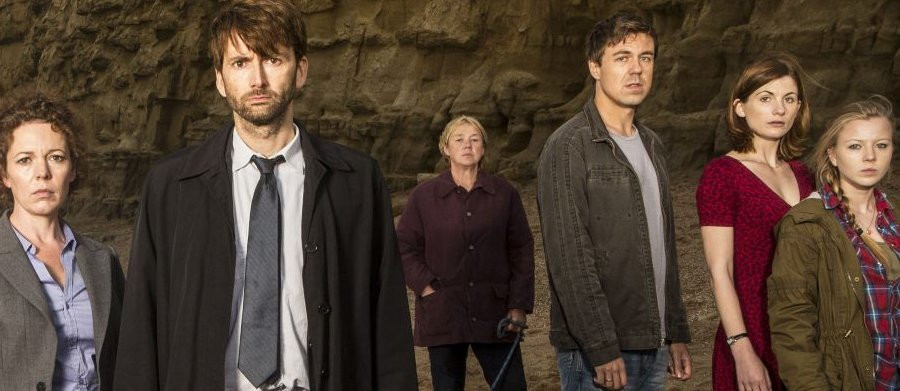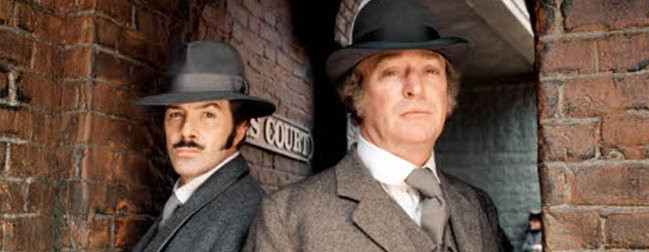
Jack The Ripper (Drama)
1988 - United KingdomA series of murders in the Whitechapel area of London in 1888 are arguably the most famous the world has ever known. Although, sadly, the crimes have been completely eclipsed since then in terms of number and brutality, they have retained a unique interest that has, over a century later, attained almost legendary status such is the air of mystery that surrounds them still. Why did someone kill five (maybe more) penniless prostitutes? Why, after killing them, were their bodies so viciously mutilated when unnecessary time spent with the bodies was only increasing the murderer's risk of being caught? Did the mutilations indicate some degree of surgical knowledge? Could it really be that an educated man such as a doctor could have committed such atrocious crimes? And, most baffling of all, why did the murders suddenly cease? Did the killer simply 'retire' or was there a police cover up? What of the rumours of royal involvement? Many names have been attached to the crimes but one in particular has carved its niche in history. It was a name taken from a letter sent to the Central News Agency claiming to be from the killer. It was signed -'Jack The Ripper'.
The autumn of 1988 saw much renewed publicity in the 'Jack The Ripper' murders with the passage of one hundred years finally occurring. The world had undergone incredible changes over the past century, but everyone was still having to guess the identity of 'Jack The Ripper' as no one had managed to conclusively prove who the murderer was. Excitingly, police files from 1888 were finally revealed to the public as they lost their 100-year 'top-secret' status. Would the release of new information allow the killer to finally be unmasked?
Several films and television programmes had been made based on the 'Jack The Ripper' legend over the years, the most notable probably being a young Alfred Hitchcock's "The Lodger" in the 1920s. The films varied from good to downright awful, but with the name 'Jack The Ripper' seemingly guaranteed to grab the attention of an audience, it was perhaps inevitable that someone would attempt to make a 'Jack The Ripper' production to coincide with the centenary. That someone was David Wickes.
Wickes wrote, directed and produced 'Jack The Ripper' for the Euston Films / Thames Television partnership, responsible for 'The Sweeney' over a decade earlier. It was made for television and was screened in two parts, the first on Tuesday 11th October 1988 and the second concluding instalment following a week later on October 18th. Each instalment began at 9pm but took a break at 10pm allowing transmission of ITN's 'News At Ten', often the custom for the ITV network which eventually resulted in 'News At Ten' being permanently - and controversially - rescheduled to a different timeslot at the end of the 1990s.
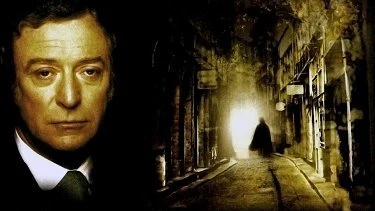
The mini-series boasted extremely high production values for a British television programme and had an all-star cast. Playing the lead role of Inspector Frederick Abberline was Michael Caine, in his first acting role for British television for twenty years. Caine had spent most of the 1980s resident in America, so his casting represented a considerable coup for the production team. Playing his sidekick Sgt George Godley was former 'Professionals' star Lewis Collins. Both Inspector Abberline and Sergeant Godley were real-life people, as indeed were most of the characters in this drama. And Abberline was without doubt at the centre of the Ripper investigation - but the drama takes liberties with his character. In fact, from the moment when we are introduced to Abberline as an alcoholic with crumbling respect from his fellow policemen the alarm bells start ringing and rightly so - for despite the wealth of research that went into this production it is at best a badly warped version of history and at worst 99% fiction.
Abberline and Godley visit the scene of the first murder, Buck's Row, where Mary Ann Nichols' body was found some time earlier. Compared to, say, the 1958 film "Jack The Ripper", this is amazing because the earlier film - and others - didn't even adhere to those simple facts and invented fictional detectives, fictional victims and fictional murder sites. But before the viewer gets too excited inaccuracies are also slipping in even at this early stage. No mention is made of previous murders - yet Nichols' was in fact the third prostitute to have been murdered in Whitechapel in 1888 and police initially worked on the theory that all three could have been committed by the same man. And Abberline's suspicions are instantly raised by the quick removal of the body and blood from the scene of the crime. The real Inspector Abberline would not have found this suspicious at all because in an age before technology could investigate forensic evidence, only very cursory examinations were made at crime scenes and it was normal practice to remove the bodies quickly.
Abberline then becomes suspicious of police surgeon Dr Rees Llewelyn (Michael Hughes) on account of him initially missing the victim's abdominal mutilations. Next he gets a visit from Queen Victoria's personal clairvoyant, Robert Lees (Ken Bones), who claims to have had visions of the killer, which leads to the detective paying attention to American actor Richard Mansfield (Armand Assante), then performing on the London stage in "Dr Jekyll And Mr Hyde". Such is his convincing performance of playing a man who can be sane one moment and insane the next, Mansfield immediately becomes a top suspect! And just to confirm his theory, Abberline seeks advice from the Queen's surgeon Sir William Gull (Ray McAnally) who agrees that it is theoretically possible for a man to switch between sanity and insanity.
The next victim, Annie Chapman, is found in Hanbury Street and Abberline continues to quiz Dr Llewelyn who takes exception to being suspected. So Abberline suspects him even more. Then Lees is run over by a coach and informs Abberline about it. Not just any coach, but a black coach with a crest on its side. The Royal coach. Checking to see if the coach has been out lately, Godley by chance gets talking to coach driver John Nettley (George Sweeney) who tells him how clever he is and how he has been teaching himself medical and anatomical knowledge. Another suspect.
Meanwhile the public have been outraged by the murders and a vigilante committee has been set up by George Lusk (Michael Gothard), whilst in reality Lusk and his committee mainly acted as street patrollers and helped to set up reward money for the capture of the killer, in this production they are an unruly mob bent on revolution and overthrowing the police and the monarchy!
The Central News Agency receives a letter from a 'Jack The Ripper', claiming to be the killer. Abberline believes that it is genuine because it refers to cutting off the victim's ears, something that happened with the last murder but, on Abberline's instructions, was withheld from the press. Another piece of fiction because the extant photo of Chapman's body shows her ears intact! September 30th brings two more murders - Liz Stride and Kate Eddowes (Susan George). This time we see the killers in action. Yes, KILLERS because it is the work of two men - the driver of the royal coach and its mysterious passenger. Dr Llewelyn, Mr Lees and Mr Mansfield all start behaving more suspiciously and just to make matters worse George Lusk's mob make the Chief Commissioner of the Metropolitan Police, Sir Charles Warren, decide to resign. And then Superintendent Arnold, Head of H Division, begins acting suspiciously too.
A trap is laid and Jack The Ripper is none other than Sir William Gull, the only one of Abberline's confidantes who did not appear on his list of suspects! Gull suffers a cerebral haemorrhage and as this renders him half dead already Sir Charles Warren decrees that he should not stand trial for his crimes - to spare Lady Gull and the royal family any embarrassment, much to Abberline's chagrin.
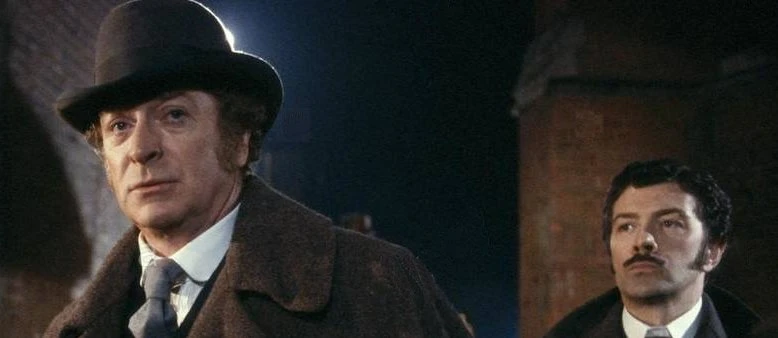
So, as a detective yarn, the plot does not stand up to close scrutiny. Sadly, as I said previously, gross liberties are taken with the facts. We are told there were no reliable eyewitness reports (despite the fact that Abberline draws the killer on his blackboard based on eyewitnesses' descriptions). In fact the police had several eyewitness descriptions, most of which tallied reasonably closely. Whilst the drama correctly states that many people were potentially in earshot of the murders yet heard nothing, is it at all conceivable that a coach could arrive and depart without being heard? And wouldn't someone remember seeing the royal coach of all things??? The coach theory is quite frankly unfeasible for the above reasons - witnesses testified to not seeing coaches - and for the fact that the Hanbury Street, Berner Street and Millers Court sites could not accommodate a coach.
The only remotely possible suspects in this drama are Llewelyn and Gull. There is no real reason to suspect either and the fact that Gull was recovering from a stroke in the autumn of 1888 makes his guilt less and less likely. So it is a shame that this drama concluded that he was the murderer, as many of the audience will probably believe it, especially as each episode opened with a statement to the effect that the producers had carried out extensive research on the original case files and believed that their conclusion was the correct one. This created considerable hype and to maintain the secret of who they thought the killer was, several different endings were filmed so that even the actors would not know until the drama was broadcast.
The visualisation of the Ripper is partially correct although he never actually carried a black leather medical bag as legend (and this production) has it and it is extremely unlikely that he walked the streets breathing like Darth Vader! But at least it can be argued that this was for dramatic effect. Having Abberline fight an alcohol addiction was doubtless introduced for similar reasons but this fails because it is virtually forgotten about by the second episode. But then a lot gets forgotten by the end whilst some characters never seemed to have much purpose in the first place. Reporter Ben Bates (Jonathan Moore) at least acts as a representation of the press of the day.

In conclusion then, "Jack The Ripper" is nothing more than a dramatisation based on real-life events and should not be regarded as fact. Its plot failings are compensated for through good production values and its strong cast and is an enjoyable, if not classic, piece of British television that is perhaps more likely to satisfy those who know little about the Ripper crimes than those who are better informed, though until something better comes along Ripperologists will keep coming back to this one.
The original transmission of the opening episode broke into the top ten ratings for that week, being watched by 14.1 million viewers, an excellent achievement given its timeslot.
Seen this show? How do you rate it?
Seen this show? How do you rate it?
Published on December 24th, 2018. Written by David May (2001) for Television Heaven.



